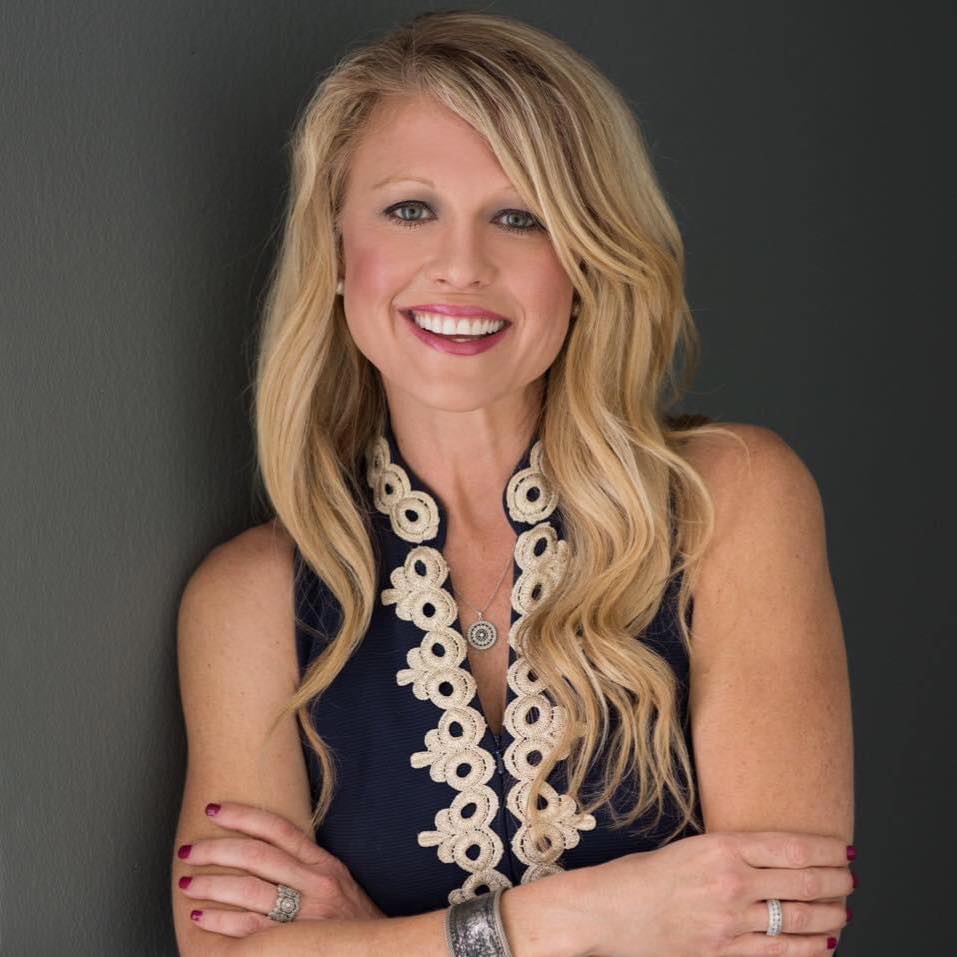Heart to Heart: T1D Caregiver Spotlight – Tricia Rudd

 April’s “Heart to Heart: T1D Caregiver Spotlight” is on Tricia Rudd! Tricia is from Sarasota and works as a real estate professional at Keller Williams On The Water. She currently serves on our Tampa Bay Community Board of Directors as the Board Advocacy Champion and has been involved with JDRF for many years.
April’s “Heart to Heart: T1D Caregiver Spotlight” is on Tricia Rudd! Tricia is from Sarasota and works as a real estate professional at Keller Williams On The Water. She currently serves on our Tampa Bay Community Board of Directors as the Board Advocacy Champion and has been involved with JDRF for many years.
Tricia’s daughter, Emmabella, was diagnosed with T1D in October of 2006 at the age of five. Emmabella is now 20 years old and graduating from Florida State University in a few weeks with a Bachelor of Science in Public Health. She will be attending Georgetown University in the fall for her Master’s in Health and the Public Interest.
Since Emmabella’s diagnosis, the Rudd family has been actively involved with JDRF, whether it be fundraising for the annual One Walk, traveling to D.C. to advocate as part of Children’s Congress, sponsoring the galas, and so much more. As a mom caring for their child with T1D for almost 16 years now, Tricia has overcome many obstacles along the way and is always learning the best way to help Emmabella manage her diabetes. Below you will find more information about Tricia and Emmabella, as well as some helpful, realistic advice about being a T1D caregiver:
Throughout your child’s T1D journey, what have been the biggest challenges you faced?
“One of the toughest challenges throughout Emmabella’s T1D journey was managing her blood sugars while she played competitive soccer and battling low blood sugars throughout the night,” says Tricia. “Sick day management is always challenging, but adapting to Emmabella being away at college was stressful. Her freshman year she fell so sick that we had to travel up to Tallahassee to bring her home to recover for a week.”
When someone with T1D gets sick, it can be very scary. Since being sick can pose a serious risk for people with T1D, it’s critical to have a plan of action in place. Click here for some helpful tips from JDRF on how to best care for your T1D when they fall ill, whether it be a mild cold or a flu bug.
While adjusting to life with a child with type 1 diabetes, are there certain things you found that helped you better manage their disease? What about something that helped give you hope when you were just getting started?
 “When Emmabella was first diagnosed in 2006, continuous glucose monitors did not exist. It was only a few short years later when she began wearing this amazing medical technology that changed our lives,” explains Tricia. “In the last 15 years, the medical advancements have improved her quality of life.”
“When Emmabella was first diagnosed in 2006, continuous glucose monitors did not exist. It was only a few short years later when she began wearing this amazing medical technology that changed our lives,” explains Tricia. “In the last 15 years, the medical advancements have improved her quality of life.”
What skills/lessons has raising a T1D child taught you? For a parent of a newly diagnosed T1D, how would you compare those feelings to now?
Tricia explains that caring for a child with T1D has taught her to not sweat the small stuff. When you are suddenly faced with a child suffering with a chronic illness, Tricia believes it makes you realize what is important in life. “Without your health and family, you have nothing.”
Can you touch on why it’s important for T1D mothers and caregivers to come together?
“Caring for a T1D child can be extremely lonely and isolating if you don’t have someone to talk to that understands first-hand what you are going through. It is essential to rely on this community for advice, resources, and support. Being part of a support group is so important because it makes you realize that you are not alone. By collectively sharing our stories, we can learn so much from each other’s experiences,” says Tricia.
JDRF has many support groups for those living with T1D and their caregivers – for more information, visit jdrf.org/t1d-resources/personal-support/. If you’re looking for local support in the Northern Florida area, send an email to northernflorida@jdrf.org and we will make sure you get connected with other families, support groups, and events we host throughout the year.
What has JDRF meant to/done for your family? (involvement, connection to community, participation in events, etc.)
“A few weeks after Emmabella was diagnosed, we were introduced to JDRF, which changed our perspective on her diagnosis and gave us hope. It truly gave us motivation to do everything in our power to find a cure for her.”
 Fundraising has been a large part of the Rudd family’s involvement through their “Emmabella’s Believers” walk team. However, their passion evolved with JDRF Advocacy, when they began meeting with legislators to discuss the importance of federal funding for T1D – that is where Emmabella found her passion for public health advocacy and health policy.
Fundraising has been a large part of the Rudd family’s involvement through their “Emmabella’s Believers” walk team. However, their passion evolved with JDRF Advocacy, when they began meeting with legislators to discuss the importance of federal funding for T1D – that is where Emmabella found her passion for public health advocacy and health policy.
 To this day, Emmabella has raised more than $350,000 for diabetes research and has educated thousands of students through her advocacy work. She has also written her own legislation in the State of Florida and is currently working towards lowering insulin prices on both the Federal and State levels.
To this day, Emmabella has raised more than $350,000 for diabetes research and has educated thousands of students through her advocacy work. She has also written her own legislation in the State of Florida and is currently working towards lowering insulin prices on both the Federal and State levels.
Through JDRF Advocacy, you can use your voice to help secure continued Federal funding for important diabetes research, inform health and regulatory policy, and improve the quality of life for those affected by T1D – until we find a cure. To learn more about how you can get involved, visit jdrf.org/impact/advocacy.
What is the most important thing you would want other parents of children with T1D to know?
“One of the most important things as a parent of a T1D is to advocate for your child,” says Tricia. “T1D is often misunderstood, and it is our responsibility as parents to educate others about the seriousness of this disease.”
A True T1D Champion
 We believe that because of parents and caregivers like Tricia, the children living with T1D in our community are given the support and care they need to succeed in life and in managing their disease. To anyone caring for a child with T1D, please know that you are not alone in the sleepless nights and heavy days. JDRF Northern Florida is here to help you and can connect you with a network of other T1D caregivers to share advice, struggles, and words of encouragement.
We believe that because of parents and caregivers like Tricia, the children living with T1D in our community are given the support and care they need to succeed in life and in managing their disease. To anyone caring for a child with T1D, please know that you are not alone in the sleepless nights and heavy days. JDRF Northern Florida is here to help you and can connect you with a network of other T1D caregivers to share advice, struggles, and words of encouragement.
For more information or to submit someone for our “Heart to Heart: T1D Caregiver Spotlight,” please contact Brooks Biagini at BBiagini@JDRF.org.